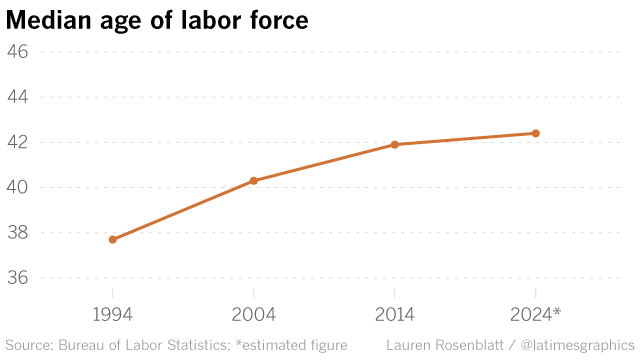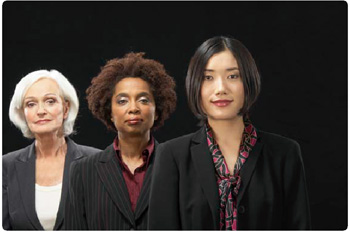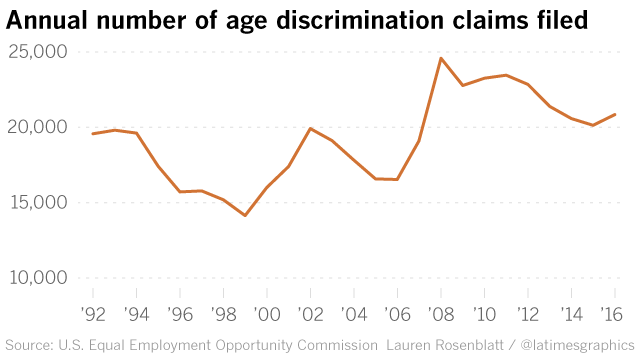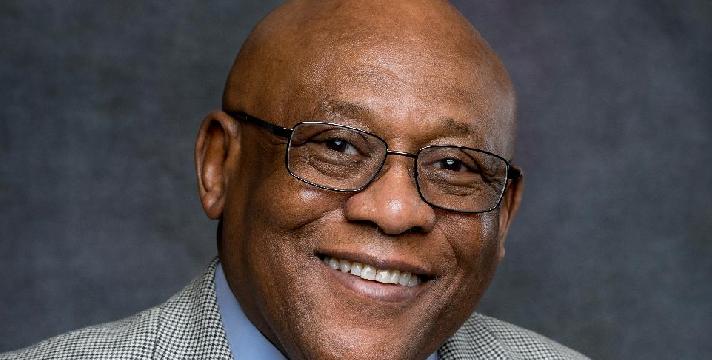*Ever heard the term digital native? How about digital immigrant? They are code words that some believe are used by employers to discriminate against hiring older workers. This year the federal Age Discrimination Employment Act turns 50; and so do many American workers. Those workers are also getting a dose of the biases this “act” was supposed to prevent.
Victoria Lipnic, acting chair of the U.S. Equal Employment Opportunity Commission, says at this ?milestone of middle age,? the law is grappling with new forms of age discrimination in the Internet era.
The business section of the LA Times claims research by the EEOC, which received 20,857 claims of age discrimination last year, found that 65% of older workers say age is a barrier to getting a job. And because many older people can’t afford to retire, they are staying in the workforce longer, or at least trying to.
I used to be naive, I’ll admit. I was one of those who believed employers welcomed the wisdom and hands-on work experience that an older person brought to the job. Older workers have climbed ladders step by step. Many have graduated with Masters Degrees from the School of Hard Knocks.
But these days that appears to be more of a detriment.
The belief from many employers is that digital immigrants — generally older workers, are not technically savvy. The LA Times report says employers feel they will be slow to adapt to technology, reluctant to learn and costly to train. Whereas younger workers — digital natives — grew up with technology and will be able to use new systems with ease. This is a totally different assessment than one that took place in a 2010 study; where workers 65-85 were said to have a positive attitude towards using technology.
Now in all fairness, there’s no actual proof that these terms are not being used simply to decipher true technical proficiency on the up and up. And according to Jacquelyn James, co-director for the Center on Aging and Work at Boston College, most of the time people aren?t even aware that they are being biased or applying stereotypes.
?The acknowledgment that they are implicit, that we don?t see them, we don?t recognize them is the most important hedge against their negative effects,? she said.
In cases of a job description she suggests getting people of different ages together to ensure these terms are not taken the wrong way.
Sara Czaja also admits that contrary to stereotypes, research does not show a correlation between age and work performance. Now if we’re talking about speed and productivity, age, she says, may certainly be a factor.
Of course a younger runner is more likely to get to the Finish Line first!
For more on this topic, and to see if age discrimination is experienced differently by the sexes, visit LA Times.







